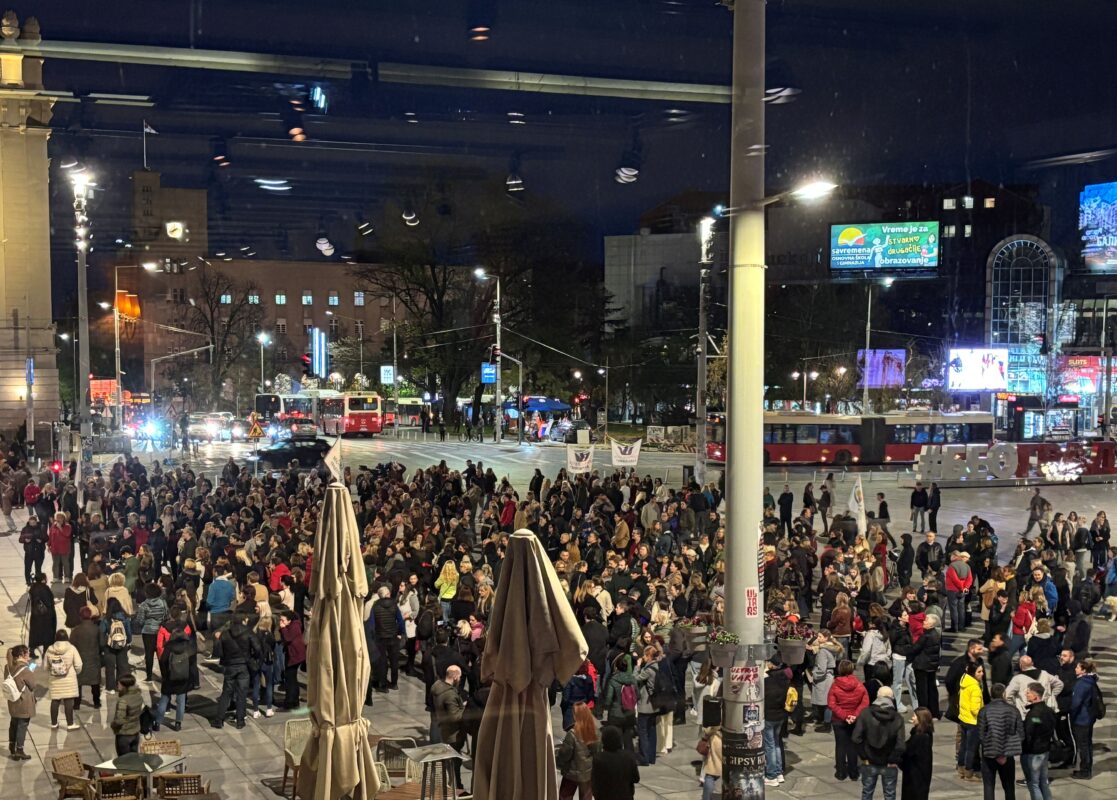Raff archive opens in Lachen
At the beginning of September, the Joachim Raff Archive was officially opened to the public in Lachen on the upper shores of Lake Zurich with a ceremony, music and an international symposium.
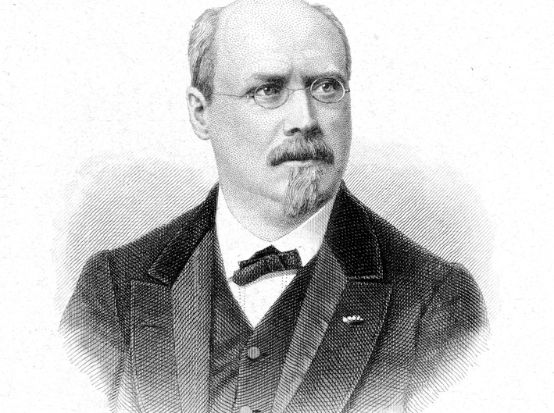
Joachim Raff (1822-1882) has long been an insider tip among admirers of late Romantic German music. His complete symphonies, concertos, chamber music and piano works have long been recorded on CD, and new editions of his works have been appearing for twenty years, for example in Edition Nordstern, Stuttgart. Indeed, the composer fills many a gap in the repertoire where there are few contemporary comparative pieces - especially in chamber and concert music. As a composer supported by Mendelssohn and in the 1850s as a member of the Liszt circle, and later as a composer associated with Hans von Bülow and Clara Schumann, he was close to both the conservative (Brahms) and neo-German (Liszt, Wagner) movements of the time. In addition to his compositional activities, Raff was also active as a music writer and teacher, most recently as director of the Hoch Conservatory in Frankfurt am Main.
-
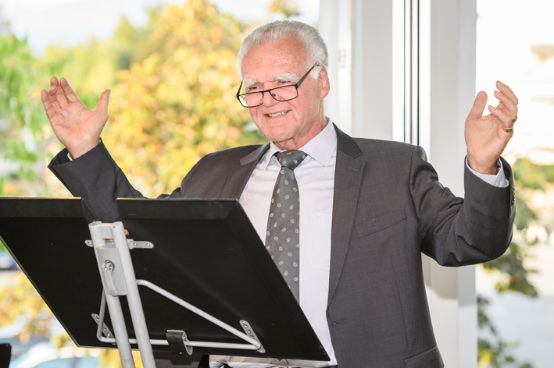
Res Marty at the opening ceremony for the Raff Archive. For almost half a century, Res Marty has been committed to researching Joachim Raff's life and work. Photo: Carlo Stuppia, Lachen
A competence center for Raff research
The fact that Raff was born in Lachen on Lake Zurich has long aroused the interest of local music lovers, above all Res Marty, who co-founded the Raff Society in Lachen 46 years ago on the composer's 150th birthday. Two years ago, these activities were intensified, and with Severin Kolb and Stefan König, a scientific team was formed that has now laid the foundation for purposeful research with cleverly constructed databases. Manuscripts and early prints of all works (at least in reproductions) were collected, over 3000 letters (with detailed registers) were recorded, pictures and biographical material were collected. Lachen was to become a "competence center" for Raff research along the lines of the Carl Maria von Weber Complete Edition or the Max Reger and Martinů Institutes.
Now, thanks to the intervention of a foundation, it has even become possible at short notice to move into dignified rooms in the house that stands on the site of Raff's birthplace. At last, Swiss musicologists looking for dissertation topics have also taken up this rather coincidental local reference, as Raff's birth on the upper part of Lake Zurich was only due to the fact that his father had to flee to Switzerland to avoid being drafted into the army in his Swabian homeland. It should not be overlooked that Raff left Switzerland for good at the age of 23 and from then on devoted his entire interest to musical life north of the Rhine.
-
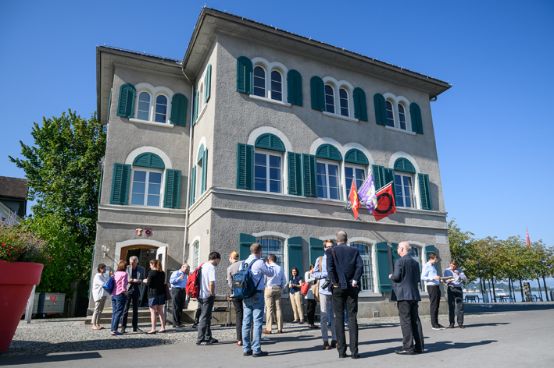
A meeting point during the symposium is the place where Raff was born. The archive has now found its place here. Photo: Carlo Stuppia, Lachen
On September 7, 2018, the Raff Archive was opened in a festive, culinary ceremony in Lachen, with musical accompaniment by Ingolf Turban (violin), Dmitri Demiashkin (piano) and the duo Sibylle Diethelm (vocals) and Fabienne Romer (piano). In some witty speeches, the rosy future of Lachen as a place of musical research was conjured up in front of a large and illustrious audience. The following evening in Lachen church, local musicians performed a concert that provided an overview of Raff's oeuvre, from the organ works to the second cello concerto.
Scientific interpretation
To mark the opening of the archive, an international academic symposium was held over two days (September 7 and 8) under the title "Syntheses" to re-establish Joachim Raff's work as a subject of music research. Musicologists and a musicologist from Germany who had studied Raff and three doctoral students from the Institute of Musicology at the University of Zurich were invited to attend.
It would be asking too much to expect comprehensive research results from the work that has just begun. Thus, the long series of lectures remained limited to proclamations, overviews of Raff's achievements in the various genres (piano music, symphonic music, chamber music, song, choral music) and insights into initial detailed studies of individual works: the String Quartet op. 77 and the opera "Samson", which was never performed in its entirety. More interesting were observations on the context: on the one hand, Raff's failures as an opera composer were made understandable on the basis of his contacts to the politically influential "Theater Duke" Ernst II of Saxe-Coburg and Gotha; on the other hand, it became clear that Raff was a special case: a composer who hardly ever played his own works himself and very rarely conducted them, and was therefore dependent on a network of performers from Breslau to Boston.
The rapid and abundant reception of Raff's orchestral music in the USA was the subject of another lecture, which also provided evidence of how rapidly the popularity of Raff's music waned after the turn of the century in both the New and the Old World. The most illuminating contribution showed how directly the idealistic philosophy of that era was reflected in Raff's compositional thinking and in his pedagogy. A symposium report is due to be published next year.
-
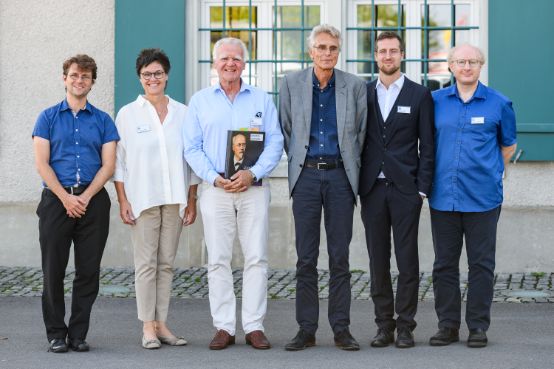
The core team of the Raff Archive: Stefan König, Yvonne Götte, Res Marty, Hans-Joachim Hinrichsen, Severin Kolb, Nathan Labhart (from left). Photo: Carlo Stuppia, Lachen
As enlightening as some of his statements were, the question remains as to whether Raff's time in the concert hall will ever come again or whether he will remain a field of research for a few music historians. After all, his output of works of varying scope and weight is huge in two senses of the word: on the one hand, he romped about in almost all genres, while on the other, his works are characterized by remarkable prolixity. However, it will be interesting to see whether the basic research in the new Lachen archive will lead to findings by the 200th anniversary of Raff's death in four years' time, which will then allow a fundamental reassessment of the music written by this musical gourmand.
Latest publication
-
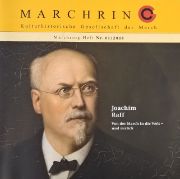
Cover of the brochure
ks. In spring 2018, the Cultural History Society of March published a richly illustrated brochure. It traces Raff's connections to the world and back to Lachen. Archive manager Severin Kolb has compiled the various texts, around 80 photos, numerous quotes and three appendices into a rich documentation. Contributions were made by
Res Marty: "Raff renaissance" in the March. 45 years of the Joachim Raff Society (1972-2017)
Severin Kolb: On the trail of a "thinking musician". A Joachim Raff archive for Lachen
Walter Labhart: Raff as an inspiration for Tchaikovsky, Mahler and Debussy (Lecture in the 2012/2013 concert season)
Rainer Bayreuther: Joachim Raff's "King Alfred" and the national movement in Germany (Lecture in the 2012/2013 concert season)
Hans-Joachim Hinrichsen: Hans von Bülow and Joachim Raff. The story of a friendship (Lecture in the 2012/2013 concert season)
Lion Gallusser, Dominik Kreuzer, Severin Kolb: From grand opera to music drama, from music drama to comic opera - Raff's "Samson" in the context of his operatic oeuvre
(Excerpt from the "Samson" brochure of the Joachim Raff Society [2017)]
Joachim Raff
From March to the world - and back
Marchring issue no. 61/2018, published by Marchring, Kunsthistorische Gesellschaft der March, ed. Severin Kolb, Zurich, Head of the Joachim Raff Archive, 132 pages, Fr. 20.-, available from www.marchring.ch






